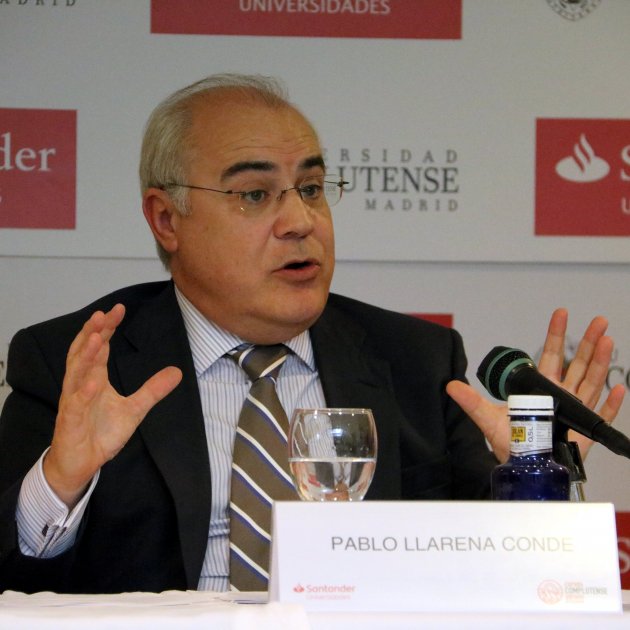Bias, partisanship and violations of the basic rights of the accused. These are the main arguments of the civil lawsuit presented by Catalan president Carles Puigdemont and the ministers in exile against Supreme Court judge Pablo Llarena before the Belgian courts, part of the legal cut-and-thrust between the judge and the Catalan government in exile. Puigdemont's government decided in June to undertake legal actions against Llarena, beyond defending themselves against the extradition warrants he had issued, all since withdrawn.
The lawsuit is based primarily on statements the judge made after an event held in Oviedo in February, when he denied that the case was politically motivated. Judges are prohibited from commenting on cases they're instructing in outside the courtroom.
The text of the filing, which El Nacional has seen, goes further, denouncing "systematic violations of fundamental rights" of members of the independence movement by the Spanish justice system. It gives a chronological summary of political and legal developments in Spain since pro-independence parties won the Catalan parliamentary election on 27th September 2015, going though the referendum on 1st October last year and the ensuing declaration of independence and imprisonments and evils.
They say that Llarena's actions during the investigation of the case have demonstrated his "bias, violation of the presumption of innocence and other basic rights". They denounce the "completely exceptional political influence" of an instructing judge, referring to the failed attempts to invest Puigdemont, Jordi Turull and Jordi Sànchez as president of Catalonia, the latter twice, all blocked by the judge. "He's exceeded his legal role or, at a least, abused it, and has forgotten the basis of the rule of law," they say.
Out-of-court events
They also enumerate various events outside the court Llarena has taken part in, despite them being linked with the referendum investigation or being political in nature. Specifically, they cite a 2014 seminar organised by FAES, a political think tank headed by former prime minister José María Aznar, a conference in Salamanca in April he was invited to by a private company and a course this summer at a Madrid university on "Justice and politics".
They say these events "reveal his political opinions" and his "partisanship and lack of impartiality" in a situation of "extreme complexity and sensitivity".
Spanish government's involvement
The lawsuit has sparked off a war between a large part of the Spanish judiciary and Pedro Sánchez's government. Llarena asked the General Council of the Judiciary for protection, to take charge of his defence over a summons from a Belgian court for 4th September. The judges accepted to do so, but the justice ministry decided they would only be involved with the accusations against the Spanish justice system in general, not those linked to private events involving the judge. The news angered the judiciary who want Llarena to be defended on all counts. On Sunday, the Spanish government announced it will hire a lawyer to defend Llarena in Belgium.
The accusations against the Spanish government which appear in the lawsuit are related to a "media campaign of systematic and violent scorn on the part of all the bodies of the state" against the independence movement, involving the government, the king and judge and prosecutor associations. "The members of the minorities pursuing political action in favour of independence of their region in Spain suffer systematic violations of their fundamental rights by the Spanish powers," they say.
The lawsuit likens Spain to Kazakhstan, saying it falls "among the delinquent states which refuse to submit to the principles of universal basic rights". Specifically, they note the case when, just days after a "request" from the UN Human Rights Committee for Spain and Llarena to respect fundamental rights, Jordi Sànchez was again refused permission to leave prison to attend him investiture as president, preventing it from happening.
Likewise, they accuse the Spanish legal system of being "incapable" of treating the Catalan question "impartially". The sole objective of the Spanish state's response is, they says, to make the pro-independence leaders renounce their political project and is not to try them for the criminal charges they're accused of.


